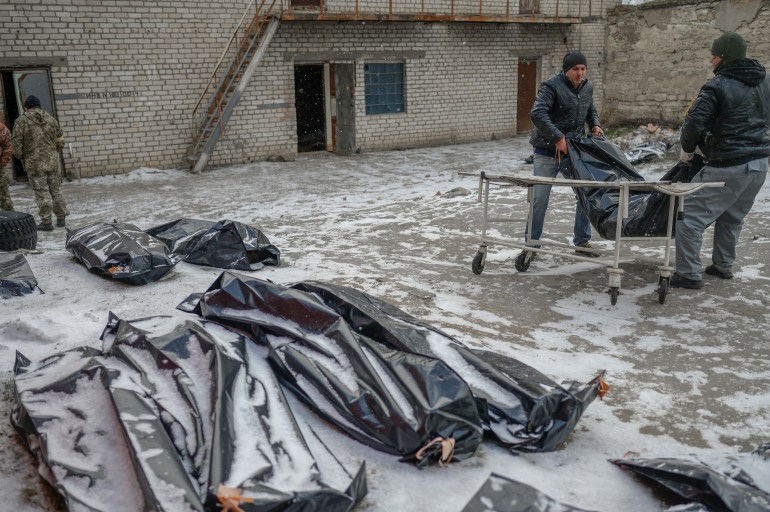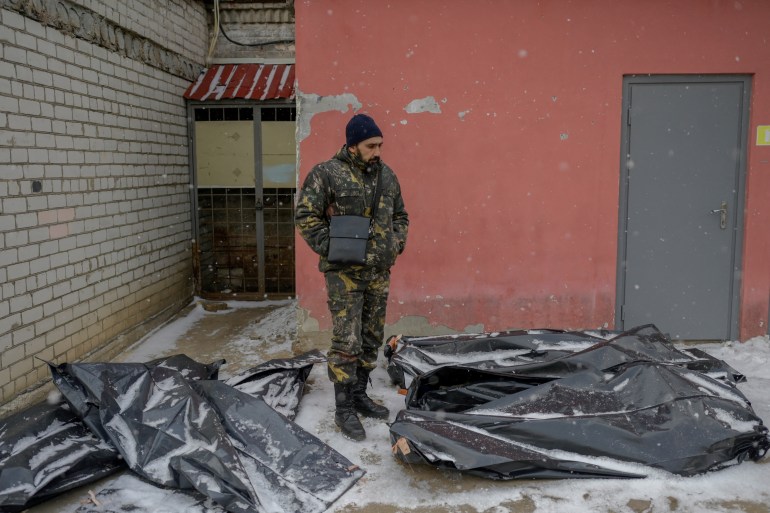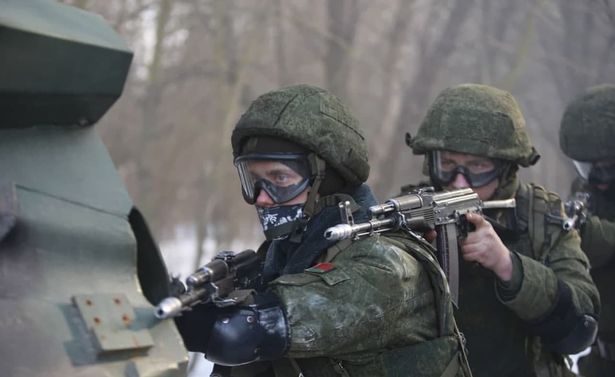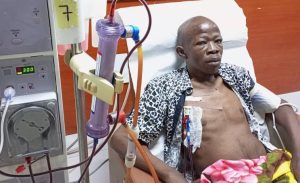Corpses Pile Up In Mykolaiv Morgue, Ukraine (Pictures)
Forensic institute in Ukrainian city under Russian attack says it has received 120 bodies – soldiers and civilians – since outbreak of war.


In fact, says the morgue employee, he was throwing Molotov cocktails when the Russians caught him. They tied his hands and executed him.
Such are the chilling images from the morgue in Mykolaiv, a city on the shores of the Black Sea that has been under Russian attack for days.
Outside, in the courtyard of the forensic institute where the morgue is located, the snow is constantly falling on corpses wrapped in grey plastic body bags, waiting to be evacuated.
In the dilapidated building, bodies are placed on the floor for lack of space. The insidious smell of death, mixed with disinfectant, is everywhere.
Doctors perform autopsies in questionable hygienic conditions. Naked bodies lie in the way of the cold store, where the fatalities from a bombardment a few days earlier in nearby Ochakiv are piled up.
Vladimir, a morgue employee who gave only his first name, lights cigarette after cigarette.
“I’ve never seen such a thing. We thought the worst thing that could happen to us here was car accidents,” he says, shaking his head.
‘So young’
Crossing the courtyard again, Vladimir opens a door onto a nightmarish spectacle.
About 30 corpses are placed on the ground. Two soldiers in fatigues, one disembowelled, are stacked on top of each other. There appear to be civilians, too.
“They are so young, younger than my nephew,” says Vladimir.
At the back of the room, there is also a Russian soldier.
“We keep them separated.”
Identification
Some bodies are difficult to identify, especially among the 19 that arrived from Ochakiv two days ago. DNA samples are taken, experts note tattoos and jewellery.
The bodies of the soldiers are repatriated to their region of origin. “They are all very young, born in 1990, in 2000,” says Dierugina.
There is silence when asked how she feels. Then her face suddenly sags: “Fear. We all have children.”
Trying not to break down, she wipes away tears.
“Here in Mykolaiv, it’s still fine, but my parents are in Chernihiv [in the north], they can’t evacuate.”
Fifteen of her colleagues have fled west, but there are about 60 personnel still working at the forensic hospital, including 20 in the morgue.
“I can never thank them enough,” says Dierugina.
The situation is still under control in Mykolaiv, she adds, but “we are heading straight for a humanitarian disaster if this continues”.
Outside the morgue, several families wait in silence under the falling snow.













